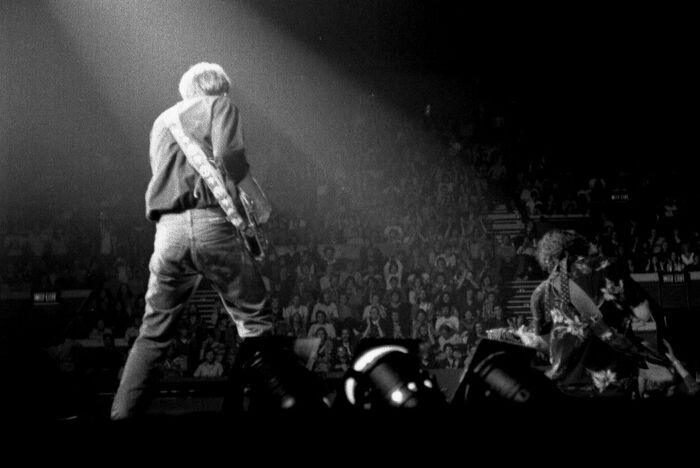Laura Marling & Me: ‘a music of hope, of honesty’
Exploring the identity and power of female artistry, read Genie Harrison on how Laura Marling’s creativity helps fuel and inspire her own life

I first came to discover Laura Marling when I was a mere 11 years old, and she 19 – the age at which I now come to reflect on what her music has provided for me, both in an emotional and practical sense. Perhaps it is the unbelievable body of work she has come to produce as I have grown older, but I have found that her music holds the same significance to me now as it did upon my initial discovery, and I imagine will, for many more years to follow.
Surrounded by a world of Ke$ha, Taylor Swift, and a myriad of other pop princesses I undeniably enjoyed, it was Marling’s writing that came to really make its mark on my pre-adolescent self. Alas I Cannot Swim (2008) exposed me to a new musical world – drawing on folklore and spiritualism, Marling’s wisdom beyond her years helped me to develop a new way of thinking. It provided the reassurance that music for young women was not totally reliant upon the existence of men, provocative dancing and relative insipidness, but could encompass matters of far greater sincerity and importance – even at a young age. Her music appeared not to conform to any one market or sense of identity, but was simply an honest representation of her own view of the world.
Marling trills, “Cross your fingers, hold your toes/ We’re all going to die when the building blows,” and my intrigued (and somewhat bemused!) 11-year-old self was drawn to a musical thinking that considered life, death, and everything beyond. Marling’s world was one totally alien from my own: there were ghosts, captains and sailors, a struggle between darkness and light… but it was the maturity and rawness of the music that left me both fascinated and totally bewildered, as it still does today.
“The authenticity of Marling’s music allowed it to speak so clearly, and her writing in a manner so expressive, I found myself keen to do the same”
Listening to Marling’s work, song-writing became a task far less unattainable; tools as simple as a voice and a guitar were suddenly enough to communicate emotional difficulties to a wider audience. The authenticity of Marling’s music allowed it to speak so clearly, and her writing in a manner so expressive, I found myself keen to do the same. Particularly as I got older, I found that song-writing became an incredibly productive emotional outlet; a sort of coping-mechanism. Even the act of simply writing music, without ever sharing or having anything come of it, generated a feeling of accomplishment within myself and helped me to process whatever I found myself struggling with.
Often an intense and self-exposing task, the intimacy I felt generated by Marling’s music pushed me to write honestly; look at things within myself that are embarrassing, difficult, and channel that energy into something productive and joyful. The 2011 album, A Creature I Don’t Know through song considers the existence of ‘A Beast’, a track that Marling claims “I still can’t believe I wrote”. She appears both entirely connected and disconnected with her work: it stems from deep within her, and yet is permitted to be born into something of its own accord.
Her music also became a source of practical importance to me when I first looked at producing and recording music. The existence of female producers within the music industry is scarce; even in 2016, no female producer was found on the Grammy nominees for producer of the year. The concept of self-producing holds great importance when we come to consider the sincerity of music; there is no one to dictate your sound but yourself, something I think incredibly important. Marling’s 2015 album Short Movie – self-composed and produced – provided evidence to me of the ability of women to take control of their own sound, and thus further the relationship between the artist and listener.
As I began exploring recording and production, it became more clear to me how important this step is in communicating with a listener. A field far less documented than that of composing, I found the decision-making process one of a very abstract quality; with no concrete formula of how production should be done, it is only through listening and sense that the task can really be completed. Short Movie provides an example of the effectiveness of successful production. Marling’s ability to communicate seamlessly inspired me to attempt to do the same; reflecting your own musical feeling onto the listener in such an impactful manner.
Watching Marling perform her most recent work, Semper Femina, last March was a particularly significant moment for me. Despite her rather shy and humble demeanour off-stage, the almost ethereal atmosphere generated by Marling’s performance awakened a feeling of such admiration that I have experienced with no other artist. Hers is a music of hope, of honesty – the music I can turn to when whether I find myself happy, sad, nervous… And while music will probably always hold great importance in my life, I think it’s the music of Marling that I shall always consider the most essential – and as she continues to write, I have no doubt that I will too
 News / Colleges charge different rents for the same Castle Street accommodation2 March 2026
News / Colleges charge different rents for the same Castle Street accommodation2 March 2026 News / News in Brief: waterworks, wine woes, and workplace wins 1 March 2026
News / News in Brief: waterworks, wine woes, and workplace wins 1 March 2026 News / Climate activists protest for ‘ethical careers policy’1 March 2026
News / Climate activists protest for ‘ethical careers policy’1 March 2026 News / Angela Merkel among Cambridge honorary degree nominees27 February 2026
News / Angela Merkel among Cambridge honorary degree nominees27 February 2026 News / Private school teacher who lied about Cambridge degree barred from teaching27 February 2026
News / Private school teacher who lied about Cambridge degree barred from teaching27 February 2026









